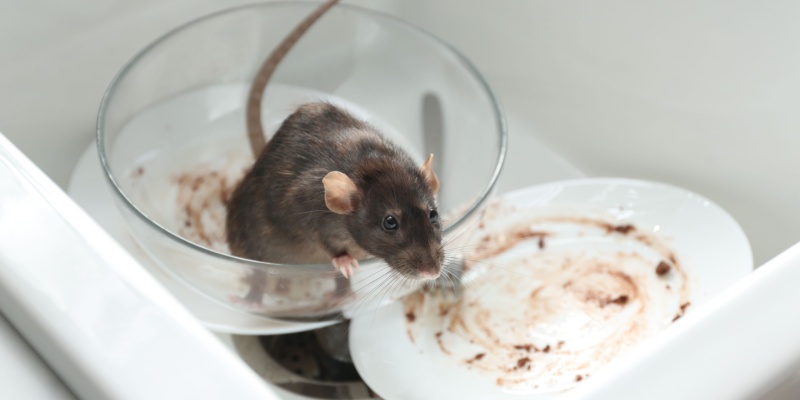Rodents, including mice and rats, are unwelcome guests in many Maine homes. Understanding why these pests thrive in Maine’s unique climate is essential for homeowners looking to protect their properties. By recognizing the factors that make Maine an ideal environment for rodents and implementing effective prevention strategies, you can safeguard your home from infestations.
Maine’s Climate: A Perfect Haven for Rodents
Maine’s climate, characterized by cold winters and warm summers, provides an ideal setting for rodents to flourish. Here’s how the state’s weather patterns contribute to rodent populations:
1. Cold Winters Drive Rodents Indoors
As temperatures drop, rodents seek warmth and shelter. Homes offer a consistent temperature, ample food sources, and nesting materials. Once rodents find their way inside, they can establish breeding grounds, leading to significant infestations.
2. Abundant Food Sources
Maine’s rich natural environment supports a variety of vegetation and wildlife, providing ample food for rodents. During the growing season, fruits, nuts, and seeds are plentiful, attracting rodents to outdoor areas. Additionally, homes with accessible food storage or improper waste management can further entice rodents to invade indoor spaces.
3. Ample Shelter Opportunities
The state’s dense forests, overgrown yards, and abundant debris create perfect hiding spots for rodents. Properties with cluttered garages, sheds, or gardens offer ideal nesting sites, making it easier for rodents to invade homes.
4. Year-Round Activity
Unlike milder climates where rodents might hibernate or reduce activity during colder months, Maine’s prolonged cold season keeps rodents active throughout the year. This continuous activity increases the chances of rodent encounters with homeowners.
Prevention Tips for Homeowners
Preventing a rodent infestation in Maine requires proactive measures tailored to the state’s climate and environmental conditions. Here are some effective prevention tips to help protect your home:
1. Seal Entry Points
Rodents can squeeze through surprisingly small gaps and openings. Inspect your home for potential entry points, such as cracks around doors and windows, gaps in the foundation, and openings around utility lines. Seal these openings with materials like steel wool, caulk, or metal flashing to prevent rodents from gaining access.
2. Maintain Cleanliness
A clean home is less attractive to rodents. Store food in airtight containers, clean up spills and crumbs promptly, and avoid leaving pet food out overnight. Regularly take out the trash and use bins with tight-fitting lids to minimize food access.
3. Manage Outdoor Areas
Keep your yard well-maintained by trimming shrubs, removing debris, and storing firewood away from the house. Reducing hiding spots and eliminating outdoor food sources can significantly decrease the likelihood of rodents finding their way inside.
4. Install Rodent-Proof Barriers
Use rodent-proof barriers around your home’s foundation and vulnerable areas. Install door sweeps, mesh screens, and weather stripping to prevent rodents from squeezing through small gaps.
5. Use Traps and Deterrents
Set up traps in strategic locations to catch rodents before they establish a large presence. Additionally, consider using natural deterrents like peppermint oil, which rodents find unpleasant, to repel them from specific areas.
6. Regular Inspections
Conduct regular inspections of your home, especially during the warmer months when rodents are more active. Look for signs of rodent activity, such as droppings, gnaw marks, or nesting materials. Early detection can prevent a minor issue from escalating into a full-blown infestation.
7. Consult Professional Pest Control
If you suspect a rodent problem, it’s advisable to seek professional pest control services. Experts can assess the extent of the infestation, implement effective extermination methods, and provide ongoing maintenance to keep rodents at bay.
Maine’s climate creates favorable conditions for rodents, making proactive prevention essential for homeowners. By understanding the factors that contribute to rodents thriving and implementing strategic prevention measures, you can protect your home from these persistent pests. Maintaining cleanliness, sealing entry points, managing outdoor areas, and seeking professional help when needed are all critical steps in ensuring a rodent-free living environment.

